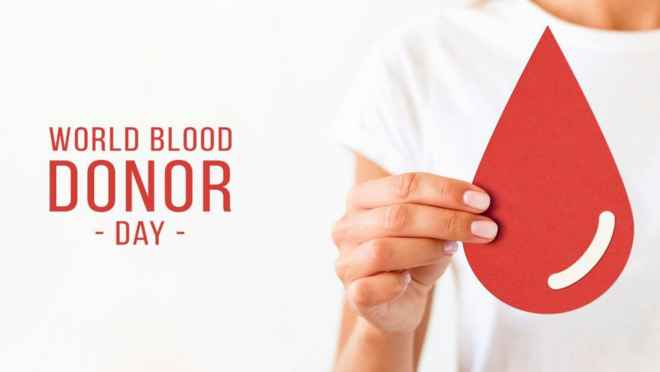World Blood Donor Day: Things to keep in mind while donating blood
World Blood Donor Day: Things to keep in mind while donating blood

14 June is celebrated worldwide as World Blood Donor day with the theme of “Give blood, give hope: together we save lives”.
From when we are children, we are taught to be kind to people. Help others. Do a noble deed. Selfless acts, whenever possible and as far as noble deeds go, blood donation is right up there on the top shelf.
And why not? You are donating your blood, your own life force to save another person. It’s a beautiful thing. Those who donate blood regularly can verify how amazing it feels to donate blood and save another person.
Not just the moral boost, blood donation comes with health benefits too so it’s a win-win situation.
But still, we have a lot to learn about blood donation. In spirit of World Blood Donor Day, here are the things that one should keep in mind about blood donation:
Are you eligible?
First of all, make sure that you are eligible to donate blood. And I don’t mean blood group. There are a few factors to check before donating blood. One should meet the minimum weight which is 50 Kg. if you are underweight, it is not recommended for your own sake.
You cannot donate if you have a cold, flu, stomach bug or any other infection either. Similarly, if you have recently had a tattoo or body piercing you cannot donate for six months. In case you have visited the dentist for a minor procedure you must wait 24 hours before donating.
Mind the medical history
While the medical history will be checked by the doctor, it is always wise to make sure that you know there’s nothing to worry about before donating blood.
People with any type of cancer, heart condition, hepatitis or anyone who had an organ transplant can not donate blood. Aside from these, there are a few more medical conditions which may prevent you from donating blood. Please consult with your doctor to know the details.
Before donating
The day before donating, drink plenty of fluid and stay hydrated. Try to get a good sleep and avoid fatty food.
Sometimes, the blood donation request comes at the last moment and you can not prepare from the day before. In such cases, make sure the aftercare is properly maintained.
The aftercare is very simple. Try not to get up right after the donation is completed. Take a few minutes to sit, gather yourself and slowly stand.
It is not recommended that you rush out immediately afterwards. Try to relax for the next 15-20 minutes. Eat something and drink fluids. Fluids are your best friend for the next few hours.
For the next 12 hours, eat regular meals and drink lots of fluids. Avoid any sort of heavy exercise or work, especially if public safety is involved. Avoid hot showers and keep your bandage on.
One may feel bruises, pain and even minor bleeding afterwards. These are usually nothing to worry about and if the bruise starts to bleed, simply apply pressure and raise your arm. If you start to feel really bad, consult your doctor as soon as possible.
For the recipients
If you or one of your friends or family members are the blood recipient, you should remember a few things. The first one is that the person donating blood is giving you his own life-force and they are doing it out of their kindness of heart; they are nothing short of a superhero and you should treat them as such.
It is understandable that your loved ones are in the hospital and you may be irritable and even worried. Be that as it may, it is still your responsibility to be nice to the blood donor to the best of your ability.
Talk to the donor and make sure that they are okay, while and after donating blood. Ask them if they are physically well and how they feel afterwards. Try to get them a little snack and something to drink, tend to them to the best of your ability.
Research shows that most blood donors do not donate for financial reasons. They donate simply because it makes them feel good to save another life. Keep that in mind while talking to the donor. Address them with respect and love. Ask them about their commute and if possible, drop them off. Most donors will not take that offer but still, you should offer all the same.
While asking about their medical history, try not to make them feel interrogated. A lot of donors have bitter experiences while donating from dealing with the recipient’s family. Try not to be one of those family members.
Last but not least, try to make them feel appreciated. They are doing something amazing; you should make sure that they know how thankful you are.


